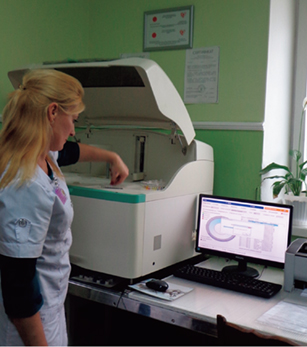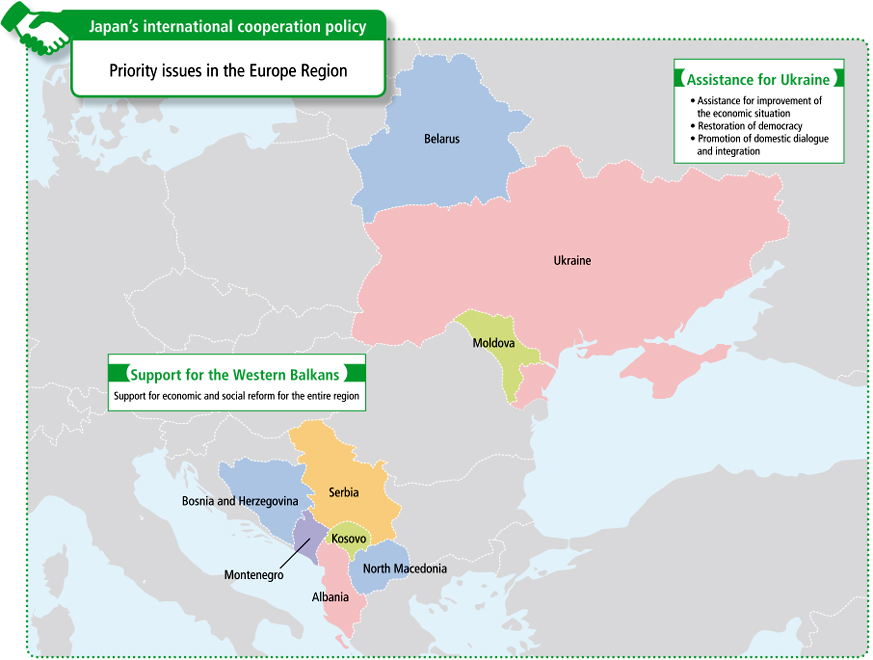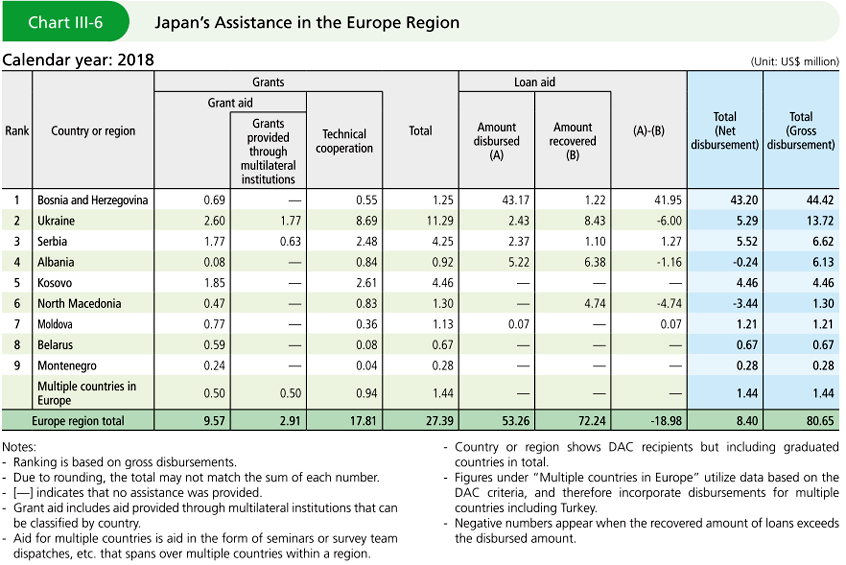5 Europe
Many countries in Central and Eastern Europe and of the former Soviet Union that were once under communist regimes have achieved democratization and liberalization. They are currently pursuing economic development based on market economies under democratic regimes. Japan provides these countries with assistance for efforts such as the transition to market economies, reconstruction of economic infrastructure, and addressing environmental issues, with the aim to further promote stability and development in these countries and in Europe as a whole, as well as to further strengthen relations based on shared fundamental values (such as human rights, democracy, market economy, and the rule of law).
●Japan’s Efforts

A hospital staff member using an automated biochemical analyzer provided through the Grant Assistance for Grass-Roots Human Security Projects at the Chernivtsi Oblast Children Hospital in Ukraine
The reforms of the Western Balkan countries(Note9) once slowed due to the outbreak of conflicts in the 1990s. However, as a result of assistance from donors and international organizations, as well as reform efforts by the countries themselves, the Western Balkan countries have graduated from the stage of needing assistance for reconstruction, and are currently at the stage in which they need assistance for sustainable economic development. Japan has provided development cooperation based on the three main pillars of “consolidation of peace,” “economic development,” and “regional cooperation” as its priority areas, which were confirmed at the joint Ministerial Conference on Peace Consolidation and Economic Development of the Western Balkans, held by Japan and the EU in 2004. In 2018, Prime Minister Abe announced the “Western Balkans Cooperation Initiative” aimed at promoting cooperation with the Western Balkan countries and realizing their socio-economic reforms. Japan continues to provide assistance especially for the “promotion of sustainable economic growth” as its priority policy in the Western Balkan countries.
Ukraine and Moldova, part of the former Soviet Union, are geopolitically important since they are located between Russia and the EU. The stability and sustainable development of these countries are indispensable for the stability of Europe as a whole. It is necessary to provide assistance for their efforts to consolidate democracy and establish market economies. In order to encourage autonomous and sustainable economic growth in Ukraine, Japan has been providing support in a wide range of areas such as health and medical care, finance, and basic economic infrastructure. As for Eastern Ukraine, where the situation has worsened, Japan is steadily implementing assistance for displaced persons such as improving the water and hygiene conditions, providing shelters, and repairing housing. Japan is also providing assistance for financial reforms, public service improvement, and the media through technical cooperation, in addition to the provision of funds.
Furthermore, in light of disparities in economic development in Europe, Japan will gradually reduce assistance for EU member countries, deeming them as having graduated from ODA beneficiaries, and encourage those countries to become donors in order to provide development cooperation more actively for developing countries in Europe.


- Note 9: The six countries including Albania, Kosovo, Serbia, Bosnia and Herzegovina, North Macedonia, and Montenegro.
